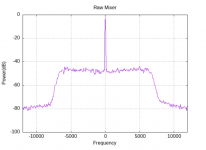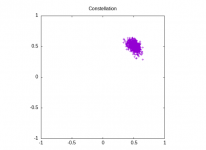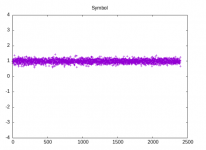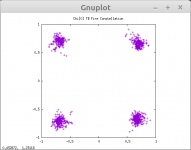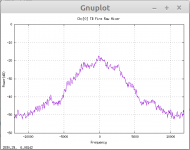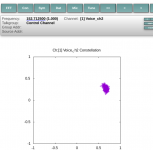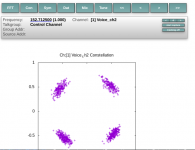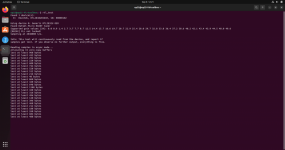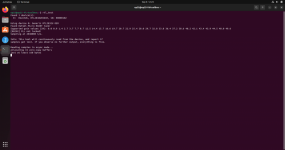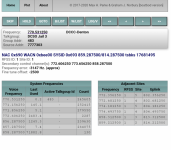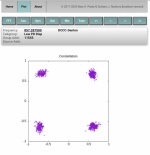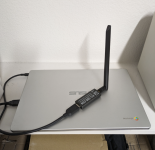Hi
I have mostly successfully gotten OP25 running on a Chromebook. (Using Crostini) The linux container is buster (Debian 10), but I have also used an Ubuntu 22.04 container with the same symptoms.
I am having trouble setting getting OP25 to acquire control channels on a consistent basis (Using NooElec RTL Dongles). Sometimes different PPM values work, sometimes nothing seems to work and I get timeouts. It seems random whether it works or not. Sometimes on the tenth try, it acquires the CC and works. Sometimes on the first or second try. Behavior is the same with multi_rx and rx.py.
One thing I have noticed, is that on occasions when the CC can't be acquired (times out) the Frequency Error on the console will always slowly climb up to 850 or so hertz, doubling or so every second. The tuning available on the console also doesn't seem to help... So I can't "dial" things in after startup.
I've used these dongles on earlier versions of boatbod's fork without any issues, the needed PPM values are consistent.
So any ideas? I have attached some screenshots of the plots when the CC can't be acquired. The constellation is kind of weird, in that there is always one tight cluster in the corner. (But only one)
Thanks
I have mostly successfully gotten OP25 running on a Chromebook. (Using Crostini) The linux container is buster (Debian 10), but I have also used an Ubuntu 22.04 container with the same symptoms.
I am having trouble setting getting OP25 to acquire control channels on a consistent basis (Using NooElec RTL Dongles). Sometimes different PPM values work, sometimes nothing seems to work and I get timeouts. It seems random whether it works or not. Sometimes on the tenth try, it acquires the CC and works. Sometimes on the first or second try. Behavior is the same with multi_rx and rx.py.
One thing I have noticed, is that on occasions when the CC can't be acquired (times out) the Frequency Error on the console will always slowly climb up to 850 or so hertz, doubling or so every second. The tuning available on the console also doesn't seem to help... So I can't "dial" things in after startup.
I've used these dongles on earlier versions of boatbod's fork without any issues, the needed PPM values are consistent.
So any ideas? I have attached some screenshots of the plots when the CC can't be acquired. The constellation is kind of weird, in that there is always one tight cluster in the corner. (But only one)
Thanks


